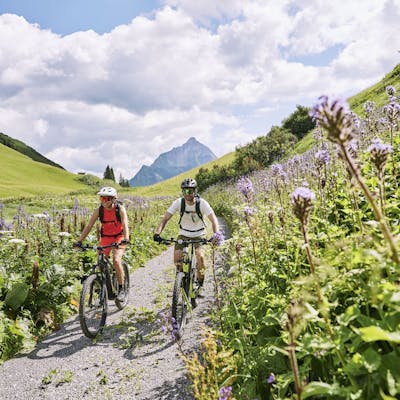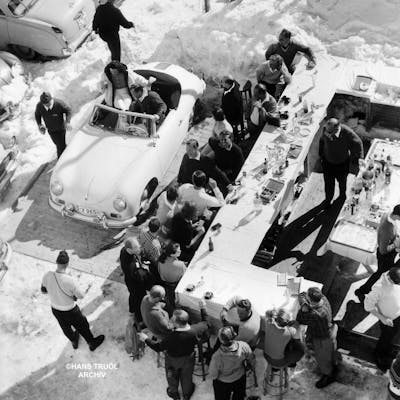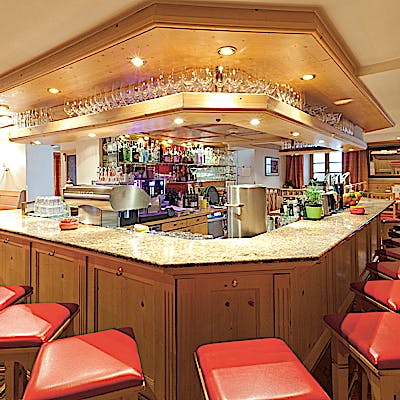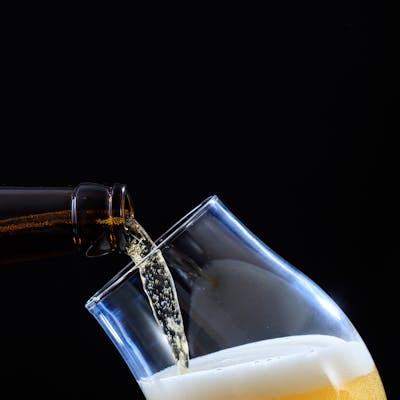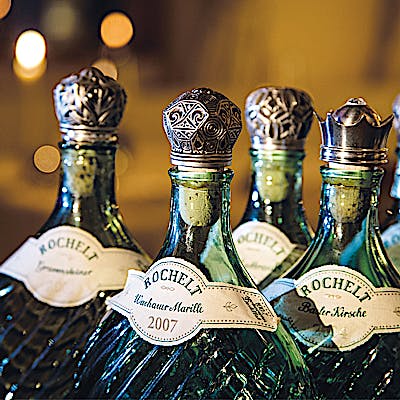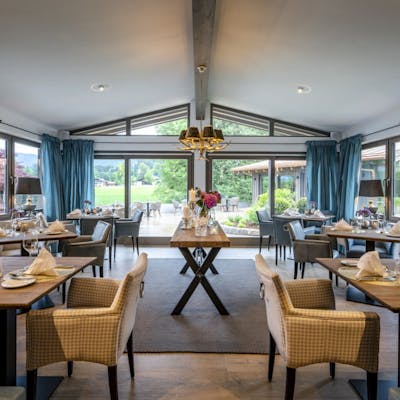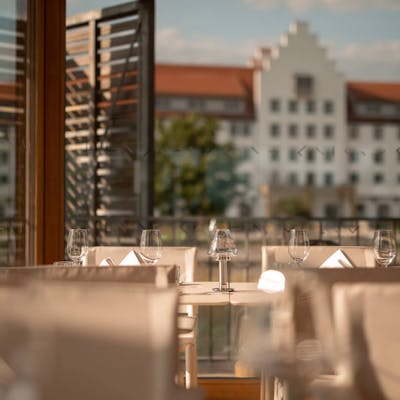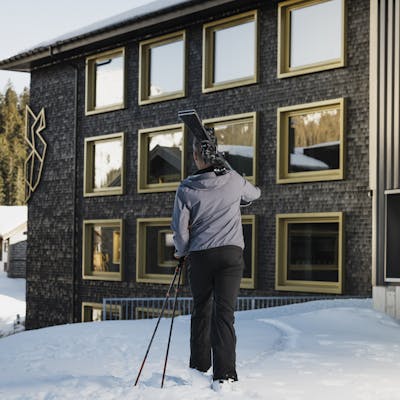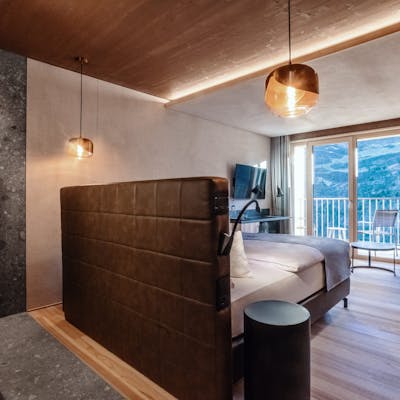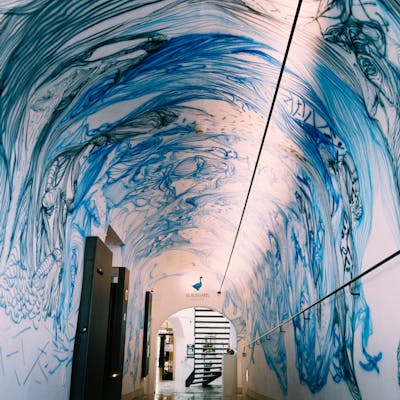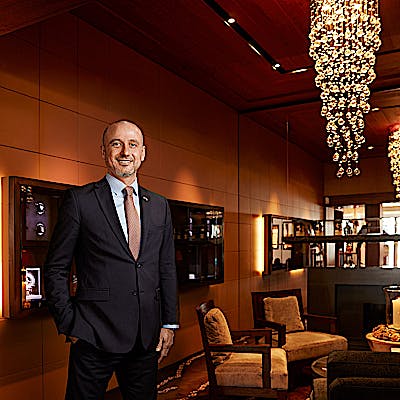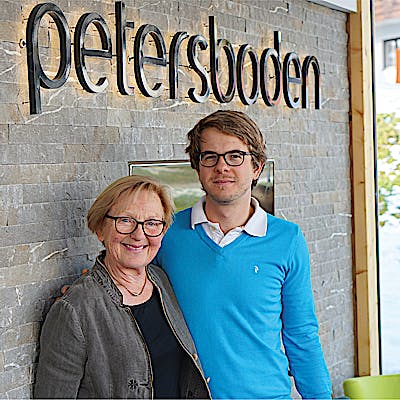



Lech’s former director of tourism, Hubert Schwärzler, wishes for conscious deceleration in Lech – not just on the slopes – and more longterm stays rather than short trips. For almost four decades he was at the top of Lech’s tourism association and in his position he accompanied Lech on its path from little-known mountain village to international winter sports hub until he retired in 2001. In his interview with La Loupe “Mister Lech” (his actual nickname) talks about his experiences, the obstacles he had to overcome, and whether things really used to be that much better in former times.
L.L./ When you became director of tourism in 1966 Lech looked nothing like it does today. What was the place like back then?
H.S./ There was stronger focus on all things athletic and things were a lot simpler. Many people stayed in shared rooms and at the few hotel-restaurants people ate in up to three shifts. Guests would sit on the stairs and patiently wait for a free table. Most of them were part of a skiing group and after a day of skiing they had a lot of fun together; there were very few private instructors. People were overjoyed when they managed to get a seat on the chair lift up to Madloch but you were also lucky if you just got someone to take your skis up to the top while you trudged up there on foot. Five-o’clocktea was very important, there were merry rounds of schnapps and in the evenings you’d go to the cinema. The guests would stay for two to three weeks, they had time and were looking for a change of pace. Sometimes Lech would be cut off from the outside world for days because of the risk of avalanches, snow removal technologies simply weren’t as advanced as they are now. Everything simply moved more slowly.
“I pushed Lech’s internationalisation early on; I had the vision of turning the village into a renowned ski resort.”

L.L. / You were in office for 40 years – that’s a long time. How did you manage to keep coming up with new ideas and remain successful?
H.S./ It was a bit of a sport for me, actually. You’d set a goal and ask yourself: can I do it? Back then we didn’t need contracts for everything, a handshake was enough. And, of course, you wouldn’t risk breaking that kind of trust. We were all in this together and we were happy about every new goal we accomplished. I started pushing for Lech’s internationalisation early on, I had the vision of turning the village into a well-known skiing resort. And I succeeded. I learned foreign languages, at first I studied English in a travel agency in London, then French at the Alliance Française and the Austrian National Tourist Board and much later I learned Italian, too. Back then we struggled with the “January-low”, that lull after the school holidays. It was back then that I realised people overseas had time off in January and so we started attracting guests from there. Our skiing instructors went out into the world as our ambassadors, making sure the Arlberg became well-known in Chile, Argentina, USA, Canada, Australia, and New Zealand. And we hired foreign-language secretaries. They took over the correspondence with the guests for the smaller hotels here. I always stayed true to the credo: “Walk in your customers’ shoes” to try and satisfy the guests needs. Lech-Zürs started everything early and was always way ahead of other ski resorts. Meanwhile the others have caught up.
“Advertising day trips is unnecessary, if you ask me. Guests should be acquired (…) for longer stays.”
L.L./ Is there something you would have liked to accomplish during your career but that did non pan out?
H.S./ There were a couple of missed chances. In the 1970s I suggested a golf course and got input from a renowned golf architect. A group of functionaries took over the project but it never got anywhere. Later initiatives never lead anywhere either. But now we finally have our beautiful nine-hole course that opened a couple of years ago. When I was in Colorado I first saw a mountain bike. But the European premiere we’d planned for Lech was rejected, as was the topic of horseback riding. What we did mange to push through, however, was the limit for skiers. In the 1970s Lech was flooded with day trippers, traffic became chaotic and that caused quite a lot of resentment. Which is why we applied the emergency brake and introduced the guest limit.
“In former times everything was more peaceful.”

L.L./ People often say: “In the old days everything used to be much better”. Does this apply to Lech, too?
H.S./ I don’t think so. People’s quality of life was much more modest and they had to put extreme efforts into building up the infrastructure. Of course, some things were better. Skiers weren’t focused on getting as many slope kilometres out of a day as possible, for instance. Nowadays many people push themselves so hard they become a danger to others in the afternoon because they’re so exhausted. People used to be much more considerate of others because they needed each other. One person on their own couldn’t accomplish anything and therefore there was a stronger sense of community. Which, by the way, made a reappearance during the floods.
“Nowadays guests want to experience as much as possible in as a short a time as possible.”
L.L./ How different are the guests?
H.S./ Nowadays guests want to experience so much in so little time. No fear no fun. Competition rather than holiday. And I ask myself: is that really necessary? I’m almost 80 and I don’t feel safe when I always have someone racing and pushing behind me when I ski. Maybe it would be a good idea to have separate slopes for racers, beginners, and seniors. Deceleration would be great. Advertising day trips is unnecessary, if you ask me. I think we should be acquiring guests for longer stays, also with special perks. And that would also benefit the environment.
Skiers weren’t focused on getting as many slope kilometres out of a day as possible, for instance.”

L.L./ What were your most formative experiences in Lech?
H.S./ I had the opportunity to make international contacts and realise my ideas in my early twenties. Which got me the nickname “Mister Lech”. And it was a fortunate coincidence that I met my wife Isolde who is from Lech and whose family took me in with open arms. Together we opened Haldenhof which is now in the hands of our children and which gave me direct contact to the guests and served as a bit of a market research lab for me.
"We used to be more considerate of others, because we needed them."
L.L./ If you were given the opportunity to recreate Lech – what would you do differently?
H.S./ I’d wish for everything to go a little more slowly and for more respect for nature. It’s not a secret that I’m not happy with how our new town centre was designed. For centuries the village’s overall image was always cared for and consequently Lech has remained a beautiful village until now. In general I think it would be good to take things into our own hands again and not hire consultants from the outside. We know best what’s good for us.
“I know from experience: In a single day you have no chance of actually getting to know a place.”
L.L./ The crazy competition in the hotel industry means that many concepts are copied. What about Lech is still unique? And what are your wishes for Lech’s future?
H.S./ Lech has a wonderful landscape for skiing but it also is beautiful in summer. We are easy to reach and there’s a lot to do in many areas. In others, however, such as the offer for kids, we still have some work to do. Events should primarily be aimed at the guests who stay here, they don’t need to draw in day trippers or media. I know from my own experience: if you only spend a single day in one place you don’t really know it. Spending a night is part of the experience.

WORDRAP WITH HUBERT SCHWÄRZLER
Lech in one sentence:
A stunning winter paradise and a pristine summer destination.
My favourite spot in Lech:
The mountains. And enjoying sunrise or sunset up there.
My “private luxury moment”:
Powder slopes.
If I hadn’t become tourism director I...
would have done something else that involves people.
My private holiday goals:
always connected to my hobbies – I hunt and play golf – I like to go to Scotland or Burgenland. Or occasionally to the sea, it’s a beautiful contrast to the mountains.
My life’s motto:
Live and let live.
Tannberg 347, 6764 Lech am Arlberg
As a young boy Hubert Schwärzler regularly spent his holidays in summer camps in the Lech region. As a grown-up he worked in the tourism industry and came back from Hörbranz to Lech in 1961 – at first he was guest relation manager and five years later he became director of tourism. Hubert Schwärzler also was a hotel owner himself: in 1969 he and his wife opened the four-star hotel Haldenhof which is managed by his son Michael and his wife Claudia today. In 2002 daughter Andrea and her husband Günther Riegler turned the former cinema into the four-star Chalet Anna Maria. Hubert Schwärzler is one of the co-founders of “Best of the Alps”, a European association that represents tourism destinations overseas, and he initiated the “Lech Weg” hiking path.



 Add to Favourites
Add to Favourites




